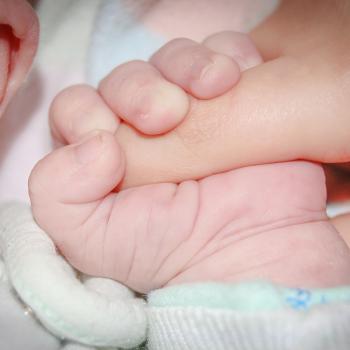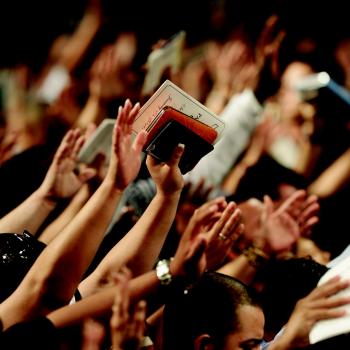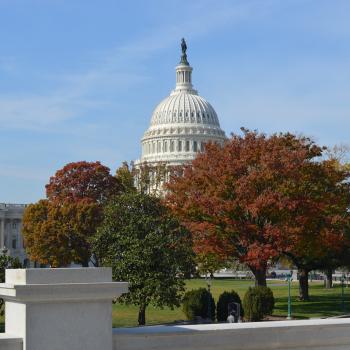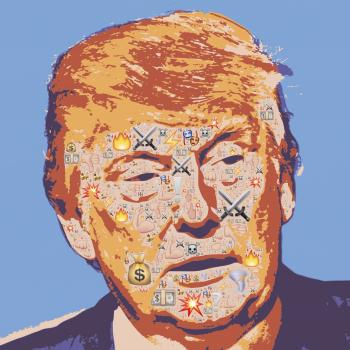This is the kind of story we should all celebrate.
This is renewal of life, celebration of the value that is inherent in all of us as individuals, beloved of an almighty God.
To begin, we need to recall the horrors of the Unite the Right rally in Charlottesville, Virginia a year ago.
It was a rally that could not have ended up any other way but badly, and for many there, that was the desired outcome.
Alt-right crusaders, white nationalists, Ku Klux Klan members, neo-Nazis, marched on Charlottesville on August 11 to 12, 2017. They carried confederate flags, chanted racist or antisemitic slogans, and descended on Emancipation Park, with the goal being to protest the removal of a statue of Robert E. Lee.
They were soon met with counter-protests, in the form of religious organizations, civil rights activists, and of course, Antifa.
The resulting conflation turned violent and destructive, quickly.
Then-Governor Terry McAuliffe declared a state of emergency. Virginia State Police declared the assembly unlawful, and the violence spilled out into the streets.
At approximately 1:45pm, a white supremacist by the name of James Alex Fields, Jr rammed a car into a group of protesters, injuring many and killing 32 year old Heather Danielle Heyer.
It was the absolute worst of us on display.
In the midst of all this ugliness was Ken Parker, a former “grand dragon” of the KKK, and a member of the National Socialist Movement, a neo-Nazi group.
Parker said he felt the need to be in Charlottesville on Aug. 12, 2017, to “stand up for my white race.”
“It was thinly veiled [as an effort] to save our monuments, to save our heritage,” he said about the rally. “But we knew when we went in there that it was gonna turn into a racially heated situation, and it wasn’t going to work out good for either side.”
Parker knew why they were going to Charlottesville, and he fully approved.
They were going to create chaos. They were going to bust some heads, all in service to the notion of “white purity.”
How do you address that kind of hate and ugliness?
For Parker, the answers – answers he didn’t even know he was looking for – began to unfold after the assembly had been deemed unlawful and his group of neo-Nazi brethren found themselves gathering in a nearby parking garage.
A documentary filmmaker, Deeyah Khan was present, as she worked on her latest project highlighting hate groups, “White Right: Meeting the Enemy.”
“I pretty much had heat exhaustion after the rally because we like to wear our black uniforms, and I drank a big Red Bull before the event. And I was hurting and she was trying to make sure I was OK,” Parker says.
Parker and Khan began to spend more time together, as she featured him in her film. He was an unashamed racist, openly stating his hate for “other.” She apparently began to break through, however, as the film shows a man in the aftermath of a violent event struggling with what had been his beliefs and his reality for a long time.
“She was completely respectful to me and my fiancée the whole time,” he says of Khan. “And so that kind of got me thinking: She’s a really nice lady. Just because she’s got darker skin and believes in a different god than the god I believe in, why am I hating these people?”
Let me go ahead and interject here that anyone who claims to know God, but hates those whom God has created and loves does not really know the true God.
Thankfully, for Parker, it doesn’t end there.
It was a few months after his participation in Khan’s film that he noticed William McKinnon III, an African-American neighbor in his apartment complex holding a cookout near the pool.
As the day wore on and the crowd thinned, Parker and his then-girlfriend approached McKinnon.
What they didn’t realize at the time was that McKinnon was a pastor of All Saints Holiness Church. Parker says he only knew there was something “different” about McKinnon.
That would be the Holy Spirit, Mr. Parker. For believers in the Way, what McKinnon exuded should be the goal. Our countenance should be such that the lost should be attracted to us, hungry for that internal thing made external.
“They sat down,” McKinnon recalls, “and she said they had some questions for me, and I just asked them what were some of the questions that they had.”
They kept talking, then decided to meet up for more discussion. Soon after, McKinnon invited Parker to the church’s Easter service. And on April 17, 2018 — six years after he joined the Klan and just seven months after Charlottesville — Parker decided he’d had enough.
That’s called breakthrough. A heart softened by the love of God is a strong heart.
A month after that Easter service, Parker stood before the congregation with a powerful testimony.
“I said I was a grand dragon of the KKK, and then the Klan wasn’t hateful enough for me, so I decided to become a Nazi — and a lot of them, their jaws about hit the floor and their eyes got real big,” Parker recalls. “But after the service, not a single one of them had anything negative to say. They’re all coming up and hugging me and shaking my hand, you know, building me up instead of tearing me down.”
What a concept.
On July 21, wearing a different kind of robe, Parker waded into the Atlantic surrounded by members of that same church. McKinnon embraced him, and then dipped his head down into the water to baptize him.
He rose up, blinking and wiping water from his face, then walked toward a line of fellow congregants waiting for a hug.
This past Monday, Parker took his transformation further, with a move to something more readily visible.
Accompanied by Arno Michaelis, an author and a speaker who used to be part of the notoriously violent skinhead group Hammerskin Nation, he checked in at the Laser Skin Solutions tattoo-removal clinic, in Jacksonville.
Removing his shirt, he revealed a swastika and a Klan symbol. There was also a Confederate flag with the words “white pride” on his leg.
He’s going through the painful process of having those external symbols of his former life removed.
“I want to say I’m sorry. I do apologize,” Parker says when asked about all the people he has hurt along the way. “I know I’ve spread hate and discontent through this city immensely — probably made little kids scared to sleep in their own beds in their own neighborhoods.”
The former neo-Nazi says he’s started to get messages from people in the hate movement. But instead of recruiting them, he now tells them to follow the same path he did.
“You can definitely get out of this movement. I mean, I was into that so much — it was my life, for six years. I never thought I would get out,” Parker said. “Get out. You’re throwing your life away.”
And it began with a single, colorblind act of kindness.
As the anniversary of Charlottesville is upon us, and news of a new Unite the Right rally begins to kick in, let’s remember Ken Parker, not for who he was, but for who he is.
Hate doesn’t have to be the way.
2 Corinthians 5:17 AMP – “17 Therefore if anyone is in Christ [that is, grafted in, joined to Him by faith in Him as Savior], he is a new creature [reborn and renewed by the Holy Spirit]; the old things [the previous moral and spiritual condition] have passed away. Behold, new things have come [because spiritual awakening brings a new life].”










